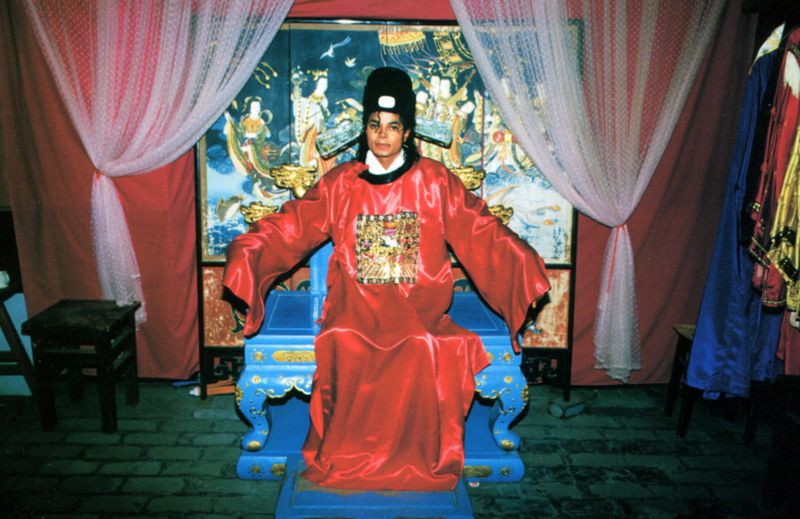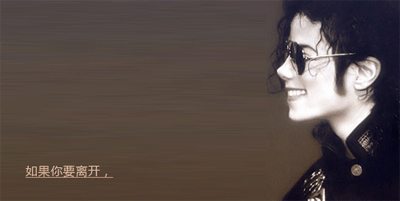|
|
 发表于 2011-1-12 12:16:42
|
显示全部楼层
发表于 2011-1-12 12:16:42
|
显示全部楼层
美联社:法官命令MJ的医生接受审判
本帖最后由 竹剑清 于 2011-1-12 12:20 编辑
斑竹:如果我发帖发重了可以删掉
美联社:法官命令MJ的医生接受审判
周二一名法官命令MJ的私人内科医生在过失杀人听证会后接受审判。因为他注射过量的强致命性麻醉剂以及其他镇静药物而致使这位流行巨星陨落。
据法官迈克尔•帕斯特称,在六天的听证会上,事情的进展对这位休斯顿的心脏病学家—康纳德•莫里医生极其不利。
检察官从听证会上两名医生的在证词中总结出莫里越权行事医药护理职责,在过量注射异丙酚后看护失职。
目击者均称如果杰克逊注射的药剂量只有此前的一半,他的去世也是因为莫里杀人造成的。
莫里的辩护律师Ed Chernoff和检察人员在听审时都减少了发言。杰克逊家人对事情进展感到欣慰。
“至此为止我很欣慰。”拉托亚•杰克逊在走向她的车时这样说。兰迪•杰克逊在走出法院的时候一边挥舞着和平的手势,一边对检察官表示感谢。
莫里,57岁,辩护自己无罪,他的律师表示他并没有给杰克逊注射任何致死的药物。但是一旦判定有罪,他将面临四年监禁。
帕斯特准许了暂停了加州医药协会授权莫里的行医资格。帕斯特称他的这一项决定是为了公共安全考虑,莫里在休斯顿和拉斯维加斯开办的诊所必须在24小时之内关闭。
在听证会即将结束之际,另一名辩护律师约瑟夫•劳尔四世(Joseph Low IV,)辩护称必须解除所有决定,因为检察人员并没有充足的证据说就是莫里导致的杰克逊死亡。他还声称,杰克逊个人的健康问题也是案件的重要因素。
“相比于劳尔先生的意见,让我单刀直入吧,这简直无稽之谈(it was not Michael Jackson's time to go),”副检察官大卫•沃尔格伦说,“因为莫里医生的过失,迈克尔的三个孩子失去了父亲。”
周二,最后一位目击证人克里斯多夫•罗杰斯医生,是洛杉矶法院的警方验尸官。
在他的审讯中,辩护律师J•迈克尔•弗拉那根暗示杰克逊有可能自行吞服了异丙酚,暗示否决静脉注射行为。
但是罗杰斯医生否决了这一说法,他称这对于莫里过失杀人事实没有任何区别。
弗拉那根的询问是莫里辩护律师在法庭上为莫里辩护的第一次明显迹象。
弗拉那根还表示杰克逊有可能是在莫里不在的时候自行静脉注射了异丙酚。
然而罗杰斯证词中表明异丙酚根本就不应该出现在卧室中,意指只能出现在医院里。“如果异丙酚在家中,医生必须要为其做要准备。”
罗杰斯同时表明杰克逊有一颗强劲的心脏,身体十分健康。
“医护水平没有达到要求的水平,”罗杰斯说,“有几项必要的行为没有采取。”
罗杰斯证词中表示莫里医生没有正确使用异丙酚治疗这位音乐家的失眠,而且在他去世前,在使用麻醉剂的情况下擅自离开也是他的失职。
另一位目击证人理查德•罗弗拉医生,麻醉药师兼临床药物学家,递交法官了一份当莫里使用异丙酚时应配备的详尽精确的医疗设备清单。
在医疗设备清单中,包括监测心脏和肺部的设备以及心脏复苏器。
“你必须明确在使用异丙酚的时候能够保证你的病人随时复苏,”罗弗拉说,“即使使用异丙酚很短,也会产生许多难以想象的后果,尤其是与其他麻醉剂同时使用。”
检察官在听证上利用证词和电话记录制成了杰克逊最后时刻的时间表。
警方侦探奥兰多•马丁内斯说莫里告诉他,他发现杰克逊停止呼吸是在2009年25日上午11时,但是911电话记录是下午12:21。
杰克逊的前保镖,壮实的阿尔佩托证明莫里曾致使他在杰克逊去世那天打911之前将小药瓶藏起来。
护理人员和紧急救护人员都认为杰克逊已经在莫里坚持要求复苏救治、送往医院之前--死在了他的床上。
医院员工也表明莫里并没有告诉他们他为杰克逊注射过异丙酚。
与此同时,电话记录上显示莫里在给杰克逊注射异丙酚和镇定剂之前和之后都在接电话。
马丁内斯的证词上说,莫里经历了约十小时试图让杰克逊入睡的煎熬,在这位歌手要求异丙酚之前,给他服用过一片安定,以及两次静脉镇静注射。
杰克逊将镇静剂叫做“牛奶”,验尸官的检察官在杰克逊的衣柜里发现了一个贴有大大的“婴儿必备”的袋子里装有一些药瓶。
马丁内斯侦探说杰克逊告诉莫里他睡不着,他或许要取消即将到来的复出演唱会“就是这样”。他的医生说迫于压力才给他注射的异丙酚。
辩护律师在初级听证会上极少询问目击证人或在场者的观点,相比与刑事审判,证据提供少得多。
检察官说他们期待更多莫里离开卧室后杰克逊自行注射过量药物的证据。
莫里曾告诉过检察官,杰克逊在去世前两个月,一周有六个晚上都接受异丙酚静脉注射。
Judge orders Michael Jackson doctor to stand trial
LOS ANGELES — A judge on Tuesday ordered the personal physician of Michael Jackson to stand trial for involuntary manslaughter after hearing testimony that he administered a lethal dose of a powerful anesthetic and other sedatives then left the pop star alone.
The ruling in the case against Houston cardiologist Dr. Conrad Murray came after a six-day preliminary hearing before Superior Court Judge Michael Pastor.
Prosecutors concluded their case with testimony from two doctors who said Murray acted outside the standard of medical care when he administered the anesthetic propofol and failed to provide proper care.
Both witnesses said that even if Jackson had self-administered the final dose of the drug, his death would be a homicide because of Murray's actions.
Murray's defense attorney Ed Chernoff and prosecutors declined comment on the ruling.
Jackson family members welcomed the development.
"I'm happy so far," LaToya Jackson said while walking to her car. Randy Jackson thanked prosecutors while flashing a peace sign outside the courtroom.
Murray, 57, has pleaded not guilty, and his attorneys have said he did not give Jackson anything that should have killed him. Murray could face up to four years in prison if convicted.
Pastor also granted a request by the California Medical Board to suspend the Murray's license to practice medicine in the state. Pastor said he made the decision in the interest of public safety and ordered Murray to notify every district in which he practices of the decision within 24 hours. Murray has clinics in Houston and Las Vegas.
During closing arguments at the preliminary hearing, another defense attorney, Joseph Low IV, argued the case should be dismissed because prosecutors didn't adequately prove how Murray caused Jackson's death. He also said Jackson's health may have been a contributing cause.
"In contrast to Mr. Low's comment, let me just say, it was not Michael Jackson's time to go," Deputy District Attorney David Walgren said. "Because of Dr. Murray's actions, Michael's children are left without a father."
One of the final witnesses Tuesday was Dr. Christopher Rogers, chief of forensic medicine for the Los Angeles County coroner.
During his cross-examination, defense attorney J. Michael Flanagan suggested Jackson could have swallowed propofol, which is meant to be administered intravenously.
While Rogers said that seemed unlikely, he said it would not have made a difference in his finding of homicide because of inadequate care by Murray.
Flanagan's inquiry was the first indication of how his lawyers might defend Murray at trial. Flanagan has suggested Jackson could have injected himself intravenously while Murray was out of the room.
Rogers, however, testified that propofol should not have been present in the bedroom because it was meant only for hospital settings and, "If there was propofol there, the doctor should have been prepared for the effects."
Rogers also said Jackson had a strong heart and was mostly healthy.
"The care was substandard," Rogers said. "There were several actions that should have been taken."
Rogers also testified that Murray was improperly using propofol to treat the musician for insomnia, and that Murray was wrong to leave Jackson's side while he was under anesthesia before he died.
Another witness. Dr. Richard Ruffalo, an anesthesiologist and clinical pharmacologist, gave the judge an exhaustive rundown on the sophisticated medical equipment that should have been present when Murray administered propofol in Jackson's bedroom.
Among the devices were monitoring equipment for heart and lungs and resuscitation equipment.
"You need to know what you're doing with the expectation your patient will wake up quickly," Ruffalo said. "Even if you're using propofol for a short time, it can do a lot of unfortunate things, especially if mixed with other drugs."
Prosecutors used testimony and phone records to create a timeline during the hearing of Jackson's final hours.
Police Detective Orlando Martinez said Murray told him he found Jackson not breathing just after 11 a.m. on June 25, 2009. But phone records showed 911 was not called until 12:21 p.m.
Jackson's burly former bodyguard Alberto testified that Murray instructed him to place medicine vials in bags before calling 911 on the day Jackson died.
Paramedics and an emergency room doctor all testified they thought Jackson died in his bedroom, before he was transported to a hospital where Murray insisted resuscitation efforts continue.
The medical personnel also said Murray didn't tell them he had given Jackson propofol.
Meanwhile, phone records showed the doctor was on the phone before and after he gave Jackson the propofol and sedatives.
Martinez testified that Murray described a nearly 10-hour ordeal of trying to get Jackson to sleep, giving him a valium pill and two other sedatives intravenously before yielding to the singer's demands for propofol.
Jackson called the anesthetic his "milk," and coroner's investigators later found several vials of it in a bag labeled "Baby Essentials" in Jackson's closet.
Martinez said Jackson told Murray if he couldn't get sleep, he might have to cancel his widely heralded "This is It" comeback tour. The doctor spoke of feeling pressured to give the star the propofol he wanted, the detective said.
Defense attorneys rarely call witnesses or present their own theories during preliminary hearings, which have a lower standard of proof than criminal trials.
Prosecutors said they expect the defense to claim Jackson administered the deadly dose himself while Murray was out of the room.
Jackson had been receiving propofol intravenously six nights a week for the two months before his death, Murray told detectives. |
|








